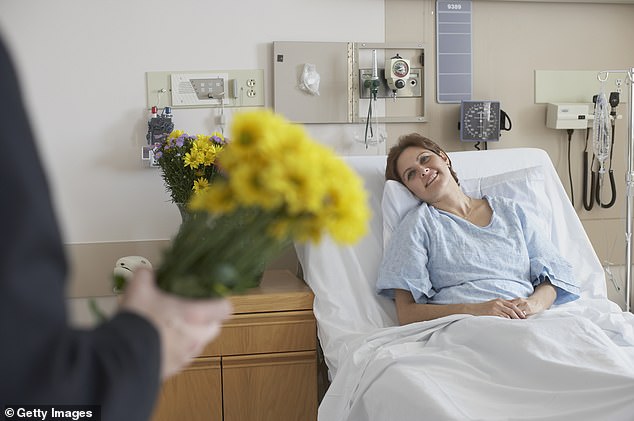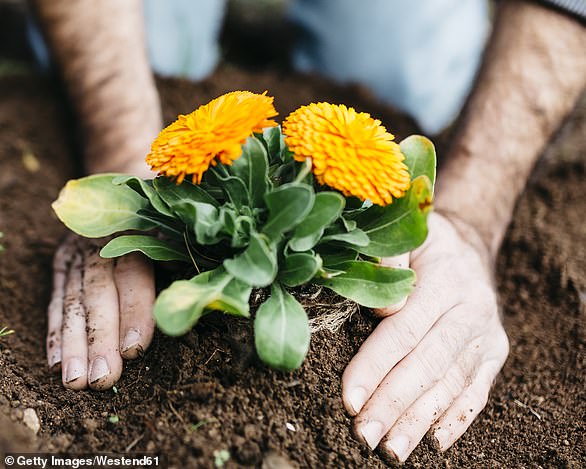Table of Contents
Being in a hospital is a horrible experience. By definition, you are not well, you often feel pain or discomfort, but you are also very likely to feel lonely. And above all, you will probably get very bored.
As doctors, we know that the psychological state of patients plays a vital role in the healing of their bodies. That is why Sir Tim Laurence’s visits to his wife Princess Anne, who spent five days in hospital last week after suffering a concussion, will have played such a significant role in her recovery.
With a blue thermal bag in his hand containing what he says were ‘some little gifts from home’, Sir Tim represents the kind of loving care that can work wonders for a patient’s mental health and have a knock-on effect on their physical wellbeing too.
After many years of working in hospitals, it is clear that patients whose families make efforts seem to have better outcomes. And research backs it up, showing that people who receive regular visits recover faster, report better mood, less pain, and have fewer complications.
Thoughtfulness goes a long way and will make a bigger difference than you think.
So when you visit someone, how can you best support them through their recovery? The key is simple: make the person feel a little special. By creating little moments of joy, you show them that you care.
That sounds obvious, but when you’re worried about them or in a hurry to make a visit, it’s very easy to forget.
First of all, do everything you can to make your visit fun and joyful.
This doesn’t mean you shouldn’t sympathize with their pain and fears, but try to save a funny story or anecdote to cheer them up.
Positive emotions have been shown to increase a person’s resistance to illness and reduce recovery time.
When you feel optimistic, they are more likely to do so too, and there is a neurological reason for this. A group of brain cells called mirror neurons fire when we experience an emotion. Crucially, they also fire when we observe other people experiencing feelings, leading us to imitate them.
A balloon or card can also have a big impact. Or send flowers, if the ward allows it (call or check the hospital website).
In a busy ward, it is very easy for older and less vocal people to be overlooked, so a side of the bed surrounded by “get well soon” wishes not only encourages the patient, but also sends a message. subtle message to medical and nursing staff. that they have a lot of people who care and worry about them.
Bring things that make you feel more comfortable. Inflatable neck support pillows or a pillow from home can make a difference. A portable fan can also be very useful in hot weather.
You may want to bring good quality food and snacks. In an ideal world, hospitals would provide nutritious, balanced meals, but this is not always the case. People recovering from illness often have a poor appetite (they are less active, may be constipated from painkillers, or may feel unwell), so make sure they have something healthy but tempting and tasty to eat.
Food is fuel, and that fuel is vital during recovery. Fruit snacks work well, especially oranges, which are high in vitamin C, essential for wound healing. Nuts, rich in protein, also aid recovery.
You could also help them drink more. Staying hydrated while recovering is incredibly important as it ensures that your kidneys are functioning at their best.
The jug of room temperature water left next to the patient’s bed can be quite unpleasant, so it is best to give them a good quality soft drink, juice or bottles of flavored water to encourage them to continue drinking. Don’t forget to give him plenty of straws if he has trouble sitting up in bed.
A little bit of whatever you like is fine too. Chocolate can improve your mood (especially dark chocolate). In fact, being sick in the hospital is one of the few times where I would say you can eat whatever you want.
Puzzles, games, books – anything that keeps patients stimulated is a good idea.
Don’t rule out easy activities like coloring: people often want to do something, but nothing too strenuous.
A fun, trashy novel can be a good bet (now is probably not the time to get acquainted with the darker novels of Thomas Hardy, for example). A simple book of crossword puzzles or word puzzles passes the time, even if they would normally be looked down upon.
Nighttime in a room can be incredibly loud and disruptive, so earplugs and an eye mask can be a godsend and are better than relying on sleeping pills.
A good quality fluoride mouthwash can be beneficial. Being able to swish it around as part of your morning routine is not only good for your teeth, but will also help you feel fresher, more awake, and generally a little more human.
I have seen many patients use their own soap and personal hygiene products. Although hospitals usually provide them, it is good to bring your favorite shower gel or soap with you. Odors in a hospital room can also be unpleasant, so a product with a pleasant aroma will help mask them; Additionally, aroma has a powerful effect on our mood by stimulating hormones in our brain. A scented hand cream, for example, can be used more than once during the day.
Thoughtfulness goes a long way and will make a bigger difference than you might imagine.
More and more people who are not diabetic are using blood sugar trackers in a bid to improve their diet and be healthier, but a study has suggested the devices could have a negative impact on mental health.
When I worked in an eating disorder service, I saw people whose problems started from using calorie tracking apps. Soon, they began to obsessively track everything.
So be warned: Trackers can help us make healthier choices, but this can easily turn into something decidedly unhealthy.
The legacy of a television star’s pain

Jill Halfpenny says people use substances to eliminate feelings of loneliness
Actress Jill Halfpenny has bravely detailed her battle with alcoholism.
“For a long time, alcohol… helped me escape, stop thinking,” he admits in his book, A Life Reimagined: My Journey Of Hope In The Midst Of Loss.
She believes alcohol was a way of coping with the trauma of her father’s sudden death when she was a child.
Increasingly we realize that addiction is not just about chemical dependency, but is a response to pain and grief, which hinders the ability to connect with other people. Very often people use substances to eliminate feelings of loneliness and isolation.
Jill remembers her first Alcoholics Anonymous meeting in 2013: ‘I experienced something I had never experienced before: people, strangers, sharing how they were feeling. No small talk or pretense, just authentic, real feelings.
The opposite of addiction is not sobriety, it is connection.
To all those who are sun-phobic, my sympathy. I hate the summer sun, the scorching heat and the humid nights. But if you even whisper that you don’t really like summer that much, people look at you as if you were from another planet.



